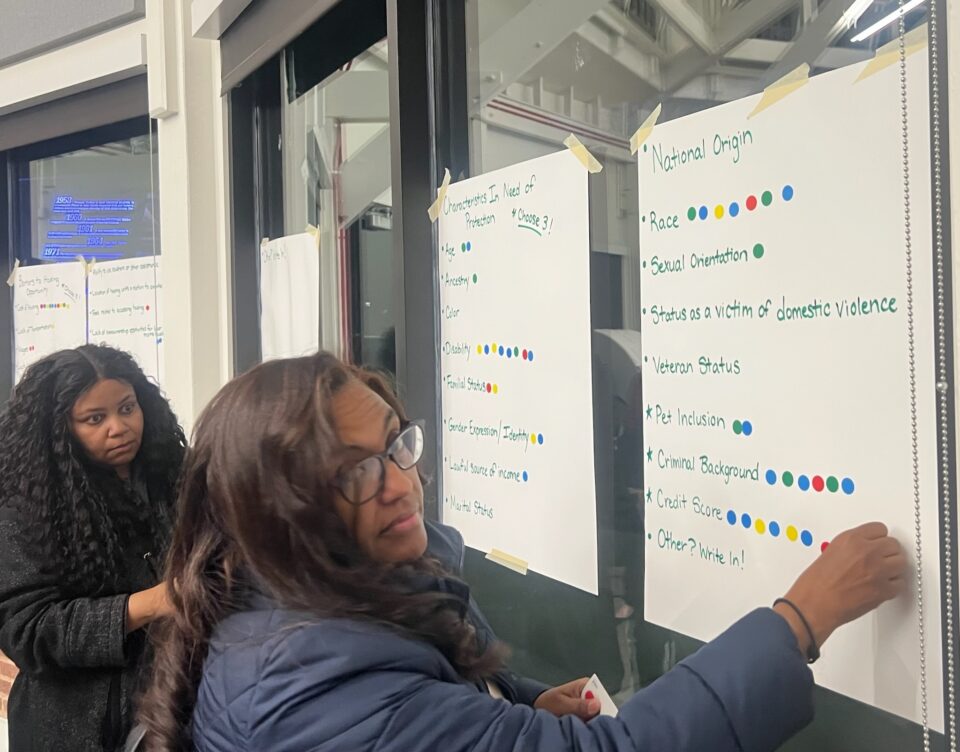By Alex Bass
Alex.bass@triangletribune.com
RALEIGH – Tanisha Holmes found an irony to the location of a recent Wake County affordable housing program – John Chavis Park. “There was enough land space to be able to go back and rebuild affordable housing for everybody,” Holmes said. “They didn’t want to do that.”
Holmes, of Southeast Healthcare, was referring to the Park’s proximity to the historic Chavis Heights community – a multigenerational beacon for upward mobility. It is that same upward mobility, some believe, that is standing in the way of continuous progress.
County officials invited citizens to gather at a handful of Wake County locations for the better part of a week. Along with a general affordable housing presentation, citizens were asked to share – on poster paper – what they consider to be the greatest barriers to affordable housing. Beyond price, credit history and previous background check details, there arose the matter of upward mobility.
Kara Sanders addressed the issue in her poster paper message. “There’s no incentive to move out, because people know that the moment they do something to advance themselves, something is going to get taken away that they cannot afford,” Sanders said.
She said this cycle perpetuates multigenerational tenants in affordable housing from one family. Thus, those in need are unable to move into something more affordable. “You have to work with the people in housing right now that is affordable to get them to dream about something outside of that,” Sanders continued.
The realities of residents being unable to find spaces in Raleigh, and often in the county, is not lost on Holmes, who sees additional strain because of related mental health care experiences. People who are living in tent communities, for instance, may need additional services for which external partnerships are necessary. This need raises a larger question.
“Where are tax dollars going?” Holmes asked about the lottery and other funds.
The feedback gathered will be used to contribute to longer term strategies, though there are opportunities for short-term gains, particularly for addressing the ever-present technology divide that mitigates affordable housing access.
Alicia Arnold, deputy housing director of the Wake County Housing Affordability and Community Revitalization Department, said COVID funds were helpful, but many of those funds are coming to an end. Still, moving closer to ensuring all Wake County buildings have publicly accessible Wi-Fi is encouraging.
“They may not have actual mobile data available to them,” Arnold said, “but they can use their devices at those locations.”
Over the longer term, extending county-city/town relationships and supporting continuous programming for new skills training and development at places like Wake Technical Community College, Arnold said, will remain paramount priorities.
“We know a lot of folks that were born low income in Wake County are remaining low income in Wake County,” she said. “We don’t want the jobs and the wages and the prosperity that we are generating to go to just people who are moving here.”

